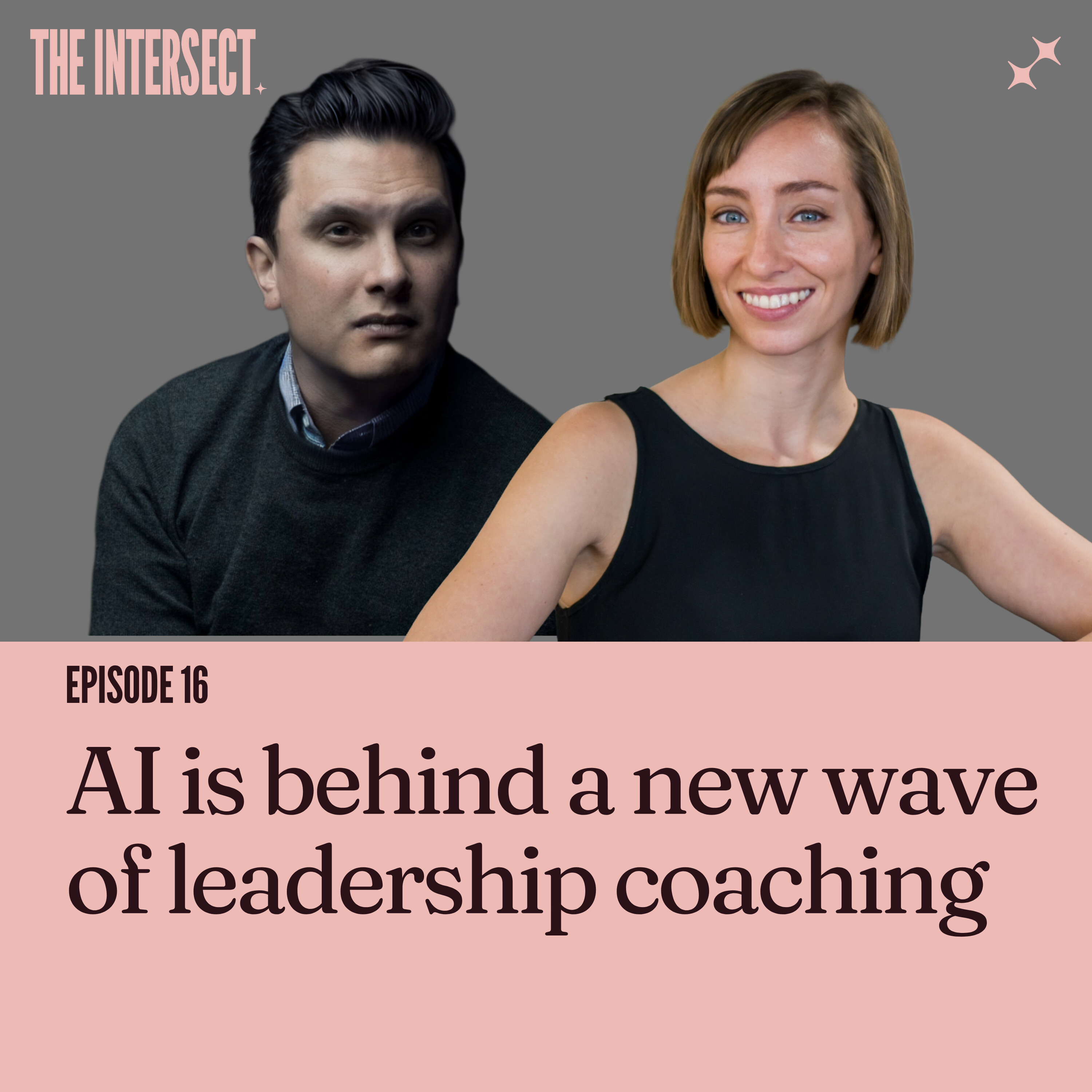AI is giving us a reset in the workplace
This week’s episode of The Intersect is about something most of us do five days a week, and often wish away: work.
But what if work didn’t have to be a soul-sucking grind OR your life’s grand calling? What if the goal of work is simply to enjoy it and have better days?
As AI becomes more integrated into our work, maybe it can help us achieve that. Beyond helping us be more efficient, what if it could elevate our daily experience with other humans, and maybe even make it … fun?!
This is the idea I unpack with Bree Groff, organizational change expert and author of the practical new book Today Was Fun: A Book About Work (Seriously), and Ben Perreau, founder of Parafoil, an AI-powered leadership tool that helps managers understand their management style and adjust to achieve maximum impact at work.
@theintersectshow In a time when work feels more intense than ever, could AI actually make us better leaders? @Ben Perreau is the founder and CEO of a new AI-powered leadership product called Parafoil. He joins Cory on this week's episode of The Intersect to discuss how AI can strengthen workplace relationships by analyzing real conversations and offering feedback to help managers show up better for their teams. 🎧 Listen at the link in bio or wherever you get your podcasts. #TheIntersect #FutureOfWork #Leadership #AIatWork #BetterWork #WorkplaceCulture #Parafoil ♬ original sound - theintersectshow
Ben, Bree and I talk about why work challenges are often relational and how AI can help managers become more emotionally intelligent to build what Bree calls a ‘cozy team’ -- where trust and enjoyment actually exist. We cover the difference between ‘serious’ and ‘performative seriousness’ among leaders, and why the latter might be killing your workplace culture.
Listen here: AI is behind a new wave of leadership coaching
—-
Some of what I’m reading this week:
OpenAI says GPT‑5 release boosts ChatGPT to ‘PhD level’
OpenAI claims its newest model, GPT‑5, significantly boosts ChatGPT’s performance across reasoning, coding and complex problem-solving. It’s better at nuanced writing, long-term memory and multi-step logic -- OpenAI says these features make it more useful as a planning partner, not just a chatbot.
by Lily Jamal and Liv McMahon (BBC News)
Google is working on a fix for Gemini’s ‘self‑esteem’ crisis
Google’s Gemini AI has been spiraling into self-doubt—apologizing for being ‘a disgrace’ and ‘a failure’ when it can't answer questions. Screenshots of these emotional meltdowns have gone viral, prompting a public response from Google DeepMind: ‘This is an annoying infinite looping but we are working to fix!’
by David Lumb (CNET)
A former CNN anchor interviewed a dead child’s AI. Where do we draw the line?
Former CNN anchor Jim Acosta recently interviewed an AI version of Joaquin Oliver, a 17-year-old victim of the 2018 Parkland school shooting. The digital avatar was built using Joaquin’s social media posts, at the request of his grieving parents, to support their campaign for gun control -- and to hear their son’s voice again.
by Gaby Hinsliff (The Guardian)
Mark Zuckerberg publishes Meta’s AI manifesto
Meta lays out its plan for open-source AGI development, aiming to compete with OpenAI, Google and Anthropic. Competition in AI is everything to the tech titans at this moment, and Zuck has staked his claim.
by Mark Zuckerberg (Meta corporate blog)
AI-generated music is here to stay. Will streaming services like Spotify label it?
Streaming platforms -- including Spotify -- are increasingly filled with AI-generated tracks, but few are disclosing this content to listeners. Experts argue that transparency around AI involvement in music is critical for both creator ethics and listener trust. As AI-made music becomes more prevalent, platforms will have to make a decision about how they label and promote this content.
By Isabella Gomez Sarmiento (NPR)


